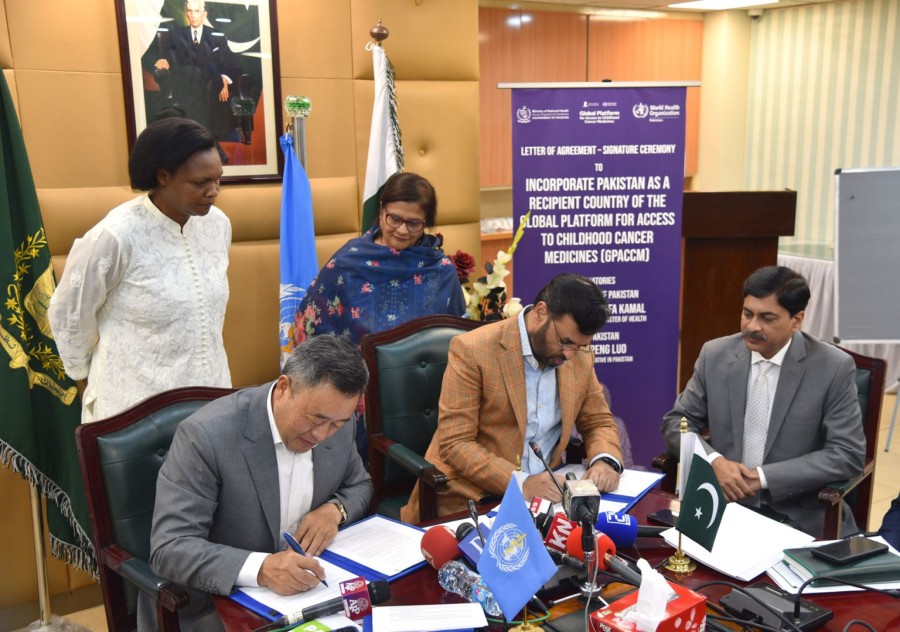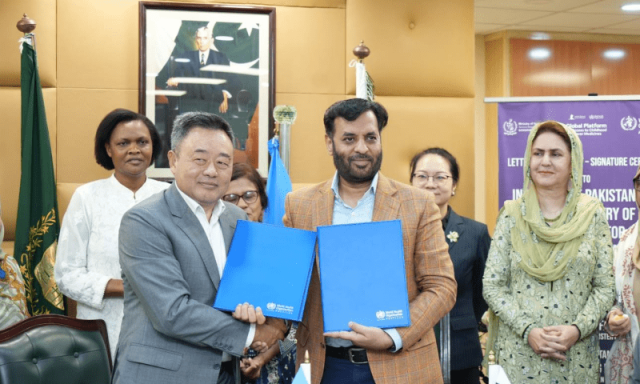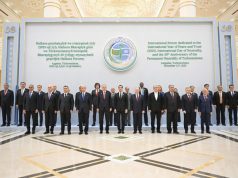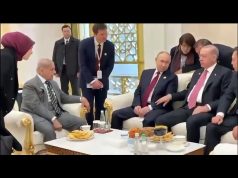ISLAMABAD, Tuesday, July 29, 2025 (WNP): Pakistan has signed a landmark agreement with the World Health Organization (WHO) to provide free cancer medicines to children across the country—becoming part of the Global Platform for Access to Childhood Cancer Medicines (GCCM), a WHO-led initiative aimed at improving survival rates in low- and middle-income countries in a major breakthrough for child healthcare.
The agreement, formalized through a Letter of Agreement (LoA), ensures the annual supply of essential cancer medications to Pakistan, benefiting nearly 8,000 children diagnosed with cancer each year.
“This is a simple but profound step—our goal is to save lives,” said Federal Health Minister Syed Mustafa Kamal at the signing ceremony. “Currently, only 30% of children with cancer in our region survive. Through this initiative, we aim to double that figure by ensuring timely access to quality treatment.”
The WHO will provide technical and operational support to the initiative, while UNICEF will handle procurement and delivery of the medicines to Pakistan.

In addition to the cancer care agreement, the Health Minister also launched the National Cholera Control Plan 2025–2028, describing it as a critical step in strengthening disease prevention and response capabilities amid rising climate-induced health threats.
“This is not just about cancer or cholera—our health system is under immense pressure,” the Minister stated, pointing to alarming national statistics: 11,000 women die during pregnancy annually, 43% of children face malnutrition, and a high birth rate of 3.6 continues to strain already-limited resources.
Emphasizing the importance of preventive care, he stressed that real healthcare begins outside hospital walls—through clean water, sanitation, immunization, and public awareness. “If we only focus on treatment, we will never break the cycle of disease,” he warned.
He urged parents to take ownership of their children’s health by ensuring full vaccination against all 12 vaccine-preventable diseases, including polio. “Our vaccinators are going door to door. Now it’s time for families to meet them halfway.”
Calling the partnership a milestone, the Minister said, “Today is a big day for Pakistan. We are not just beneficiaries—we are partners in global efforts to ensure that no child dies from a treatable illness.”
Echoing his sentiments, WHO Representative in Pakistan Dr. Dapeng Luo said, “No child should die because they cannot access life-saving medicine. WHO is proud to stand with Pakistan to leave no child behind—no matter who they are or where they live.”
Dr. Luo also highlighted that climate change is worsening the threat of cholera and other diseases, particularly for communities without access to clean water and sanitation. “Prevention, detection, and rapid response are key to avoiding another public health crisis.”
The partnership reflects Pakistan’s growing commitment to universal healthcare access, with special focus on maternal and child health—marking a transformative step toward a healthier future.




